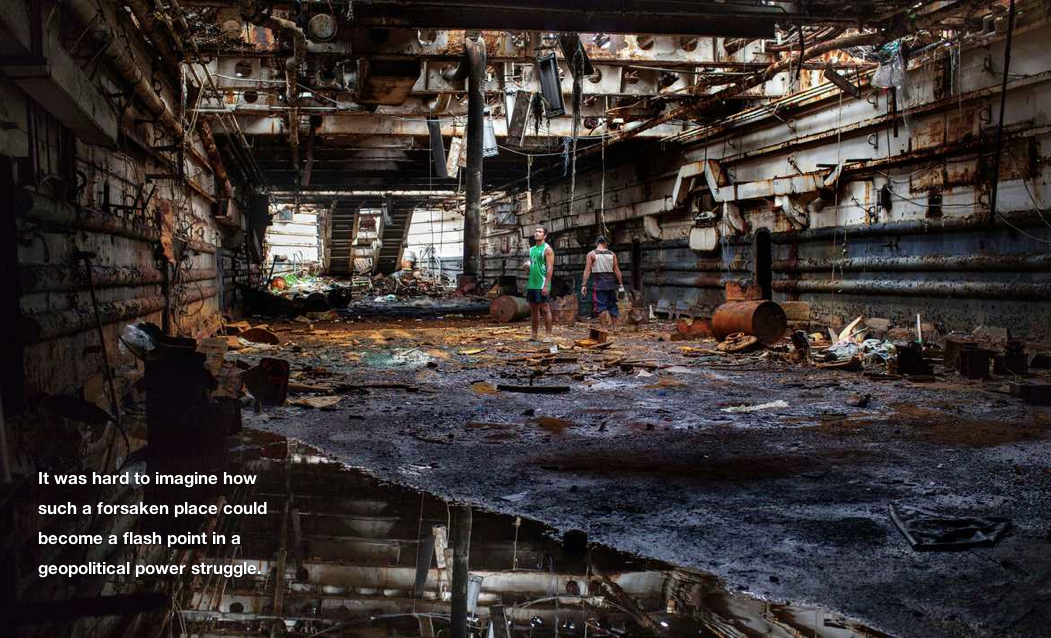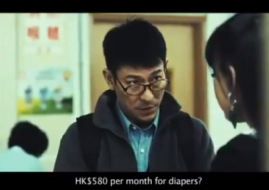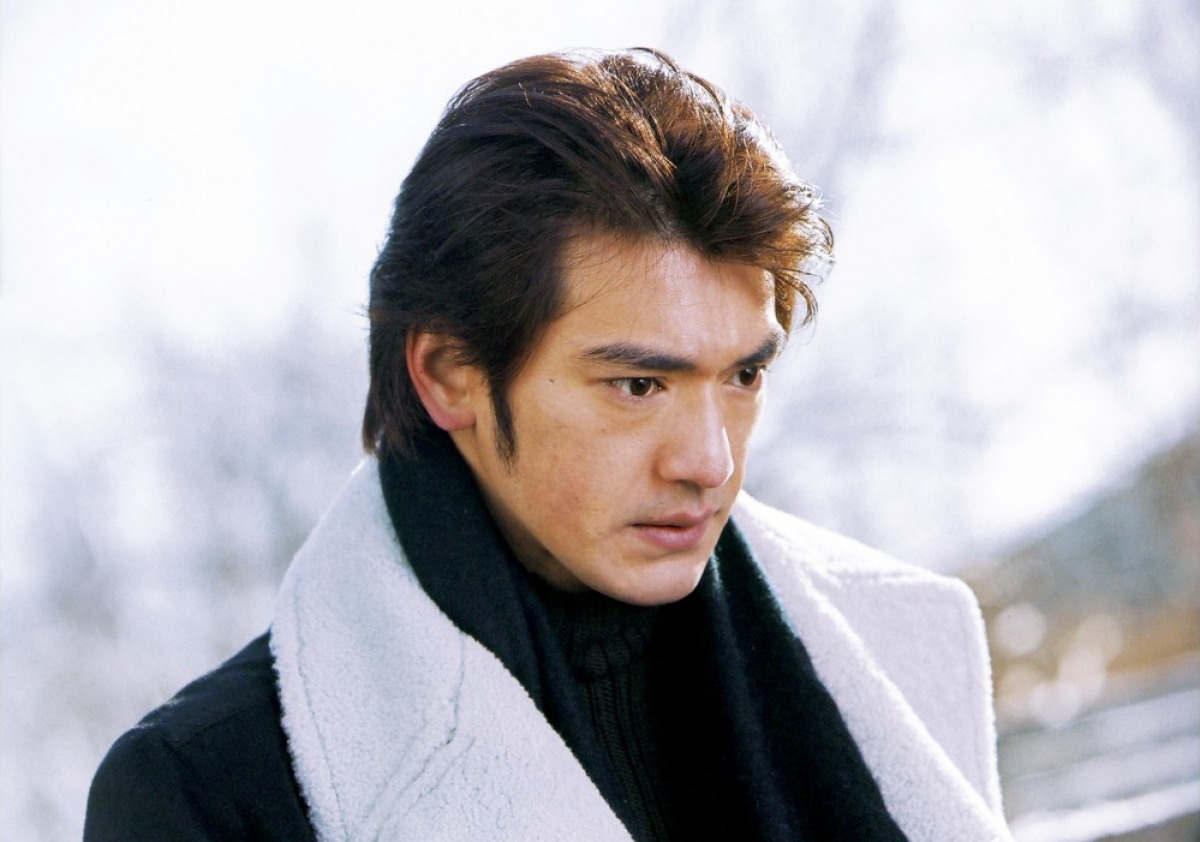Spring Subway (2002)
Director: Zhang Yibai
Producer: Liu Fendou
Writer: Liu Fendou
cinematographer: Zhao Xiaodong and Gao Fei
Cast: Geng Le, Xu Jinglei, Zhang Yang, Wang Ning, Fan Wei, Ke Lan, Gao Yuanyuan, Tu Qiang
Language: Cantonese
Cantonese: Kai Wang Chun Tian De Di Tian
Running Time: 93 min
Festivals:
Philadelphia Film Festival 2003
Seattle Intl Film Festival 2003
Udine Far East Film Festival 2002
Shanghai Intl Film Festival & Market 2002
Plot: Ruggedly handsome Geng Le (In the Heat of the Sun , Beijing Rocks), and currently hot mainland pop-idol Xu Jinglei (Spicy Love Soup) both do the best work yet of their young careers playing a twenty-something couple lost in the doldrums of a seven-year-old marriage that seems to be coming apart for no particular reason.
~~~~
Spring Subway takes its time. In fact, this is a film where time itself can almost be considered one of the main characters. Time erodes, as in the seven year itch that affects lovers Jianbin (the handsome Geng Le) and Xiaohui (pretty pop idol Xu Jinglei) as they reach a turning point in their lives. Time buffers, like when Jianbin loses his job and spends his days riding the subways rather than fessing up to Xiaohui about the loss. Time permeates, as she finds herself inescapably drawn into an affair with a customer of her design firm; a gentle man in every aspect, who moves through life at his own slower pace. And again we feel time as Jianbin discovers an infatuation for a teacher recuperating from an accident, and waits patiently with her day after day until her bandages can be removed.
Director Zhang Yibai uses time and the space around him (a contemporary and beautifully rendered Beijing) to show how love, passion, loyalty and friendship all ebb and flow over the years, sometimes without us even being aware of the subtle shifts and changes in and around us. Implicating real life, when each one of us has at least once imagined how a scenario, a meeting, a conversation, will turn out – going through the dialog in our own heads, imagining the other’s reactions – knowing full well that the truth will inevitably be very different, we are left to sit almost uncomfortably through the unspoken desires and anxieties of the characters. Peppered throughout the film are moments where time is stopped, or manipulated, to let us see their inner workings. When Jianbin finally decides to tell Xiaohui about losing his job, we are shown a scenario that is both comforting and disheartening. Once again we are forced to watch a moment play out that we know cannot be true, but nonetheless wish was so, if only for the benefit of the struggling Jianbin.
The film plays well with various cinematic styles. One moment you’re the casual observer, the invisible watcher from the camera’s eye; while the next moment you’re the direct object, being addressed and confided in. These techniques, wrapped up with sumptuous cinematography and a score of equal parts soulfulness and melancholy, add up to a very solid, engaging film from a Sixth Generation director who is proud to show us that life in Beijing is not much different than anywhere else. After all, time exists for everyone, even for couples like Jianbin and Xiaohui who find that forever is a relative term when dealing with love.
~~~
REVIEWS
Urban psychedelia and modern Beijing in this engrossing new release by Zhang Yibai that explores the painful breakup of a long-term relationship, and the intertwined lives of the subway commuters
Beijingers will have to resist playing “spot the station” when watching Zhang Yibai’s third major theatrical release Spring Subway, a film so decidedly engrossing it demands a far more thoughtful attitude from anyone witnessing its glory.
Eagerly anticipated by art house followers across the globe, it at least categorically belongs to the urban psychedelia genre we’ve been seeing quite a bit of recently. In fact, Spring Subway’s greatness equals that of Xin Lee’s Dazzling in that it proves you can be intellectually complex while still making perfect sense. Thus, it transcends most other efforts in its consistent quality and believable event sequences, drawing you into protagonists’ lives so efficiently you truly lose track of nearby physical surroundings.
Geng Le (Restless, Beijing Rocks) plays Jian Bin, unemployed for three months but fearful of sharing these bad news with his wife Xiao Hui (glorious Xu Jing Lei of previous Zhang Yibai works Shower and Spicy Love Soup). The couple has seen their once brightly burning passion dulled by routine, to the point where both still love each other tremendously yet cannot motivate enough to prevent feelings of detachment and alienation from entering their reality. Hence, Jian Bin rides the subway in circles all day, lying to Xiao Hui that he’s been at work, desperately seeking new meaning to his shattered life. En route he observes other love affairs and quests of the heart, as strangers on the train go about their own little emotional odysseys (reminiscent of Wu La La’s role as a kindly voyeuristic theater attendant in Dazzling).
Meanwhile, both Jian Bin and Xiao Hui dabble in little, mostly innocent affairs acting as release valves for rising tensions, the former with a kindergarten teacher injured in a gas explosion, the latter hooking up with sympathetic gentleman and bar owner Lao Hu (Zhang Yang).
Spring Subway is awash with symbolism and metaphors, chiefly life’s similarity to being on a train. Its your choice where to get on and off, or simply keep going, treading water ad eternum. At the same time, there’s nothing pretentious or condescending about it. Actually, it’s so easy to become involved in the couple’s misery you cannot help but feel their frustration and anguish, almost akin to watching very close friends go through a tough phase. Also, at long last we have a down to earth Beijing movie where no one feels the urge to go biking in front of Tian’anmen or rent a Summer Palace courtyard house.
—Lee Alon, CityWeekend.com.cn
Ruggedly handsome Geng Le (In the Heat of the Sun , Beijing Rocks), and currently hot mainland pop-idol Xu Jinglei (Spicy Love Soup) both do the best work yet of their young careers playing a twenty-something couple lost in the doldrums of a seven-year-old marriage that seems to be coming apart for no particular reason. Xu Jinglei plays Xiaohui, who works in a design company and is drawn to a friendship cum affair with a customer (a nice sloe-eyed turn by Zhang Yang, the director of Shower and Quitting). Geng Le plays Jianbin, who just lost his job, but maintains the pretence of going to work by riding the Beijing subway all day. There, he observes a clutch of fellow passengers in the process of tentatively falling in love. The film jumps among these different romances he eavesdrops on: a garrulously jovial pudgy baker woos the equally voluble saleswoman of his dreams; and a curiously shy slacker gropes furtively in the overhead straps with a young commuter’s all-too-willing hand. Extra-marital emotional peril looms when Jian Bin finds himself drawn to an injured schoolteacher, whom he gently, though anonymously cares for as she recovers in hospital.
A sense of mute, frustrated yearning pervades the story, most of whose characters seem frustrated in their inability to express their feelings. The central couple could restore their marriage if only they could bring themselves to speak directly to each other, But their strenuous attempts to do anything but talk seem to exhaust their energies, pushing them to find companionship and love elsewhere.
This may be one of the most thoroughly “international” Beijing films yet. With its cappuccino drinkers and sleekly modern settings, it could just as easily be a story from any urban capital: San Francisco, Tokyo, London. Greater than the sum of its parts, Spring Subway whirls forward with a giddy rush of feeling – it’s at the same time romantic and post-romantic, which should please both paying audiences and jaded critics – flaunting a new, state of the art flair for the global urban culture all its own.
—Shelly Kraicer (Chinese Cinemas), Udine Far East Film Festival 2002




















